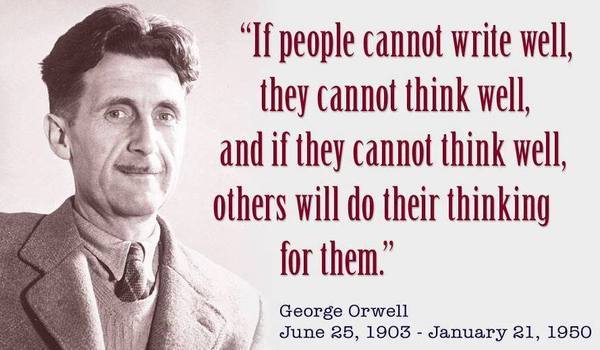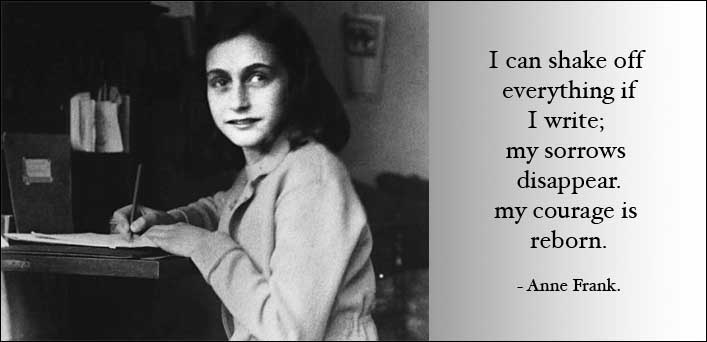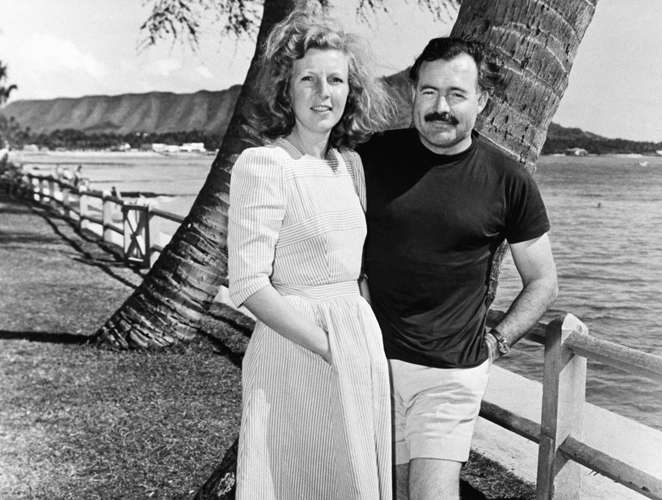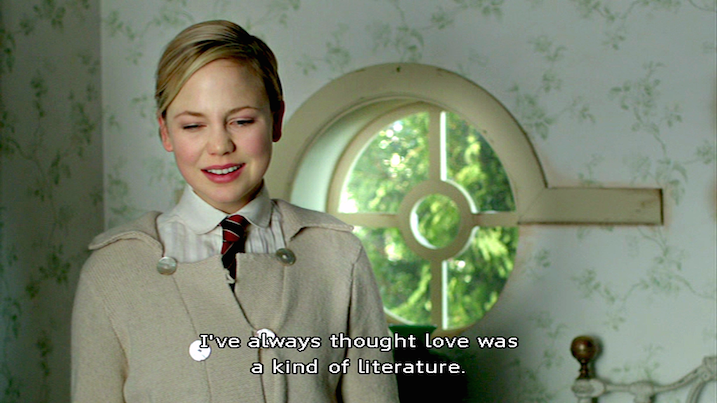|
home | what's new | other sites | contact | about |
||||
|
Word Gems self-knowledge, authentic living, full humanity, continual awakening
Writing & Literature
“Sir, more than kisses, letters mingle souls. For, thus friends absent speak.” John Donne
Editor's 1-Minute Essay: What, Why, How: Writing That's Worth Reading Higher Creativity: Liberating The Unconscious For Breakthrough Insights
Henry David Thoreau: "Books are the treasured wealth of the world …Their authors are a natural and irresistible aristocracy in every society, and, more than kings or emperors, exert an influence on mankind." Rainer Maria Rilke: “As if no one had ever tried before, try to say what you see and feel and love and lose.” Jorge Luis Borges: "I have always imagined that paradise will be a kind of library." Channeled testimony via the mediumship of W. Aber, presented in the book The Guiding Star: “This … is the history of all intellectual progress. The man who lives on the higher plane of his own being, who with mighty efforts has surmounted commonplaces, traditions, and conventions (surmounted, not skirted their base), and who has strength enough to carry his intelligence a furlong farther into chaos, to snatch from the formless and the void the thought that shall revolutionize society in the coming generations, rarely has strength enough also to mold it into logical and verbal perfection which will appeal to all educated and thinking men. But other men, struggling toward the same goal, who have had their steps directed and their pathway smoothed by the original explorer, can use their untaxed energies in giving form and symmetry to the new truth. These men may even have more strength and use it more tellingly than the men who live on what you have called the higher plane.” F. Scott Fitzgerald: “That is part of the beauty of all literature. You discover that your longings are universal longings, that you're not lonely and isolated from anyone. You belong.”
Tom Schulman, Dead Poets Society: "We don't read and write poetry because it's cute. We read and write poetry because we are members of the human race. And the human race is filled with passion. And medicine, law, business, engineering, these are noble pursuits and necessary to sustain life. But poetry, beauty, romance, love, these are what we stay alive for. To quote from Whitman, 'O me! O life!... of the questions of these recurring; of the endless trains of the faithless -- of cities filled with the foolish; what good amid these, O me, O life?' Answer. That you are here -- that life exists, and identity; that the powerful play goes on and you may contribute a verse. That the powerful play goes on and you may contribute a verse. What will your verse be?"
F. Scott Fitzgerald: "To have something to say is a question of sleepless nights and worry and endless ratiocination of subject - of endless trying to dig out the essential truth, the essential justice. As a first premise you have to develop a conscience and if on top of that you have talent so much the better. But if you have talent without the conscience, you are just one of many thousands of journalists." William Faulkner: "Always dream and shoot higher than you know you can do. Don't bother just to be better than your contemporaries or predecessors. Try to be better than yourself. An artist is a creature driven by demons. He doesn't know why they choose him and he's usually too busy to wonder why. He is completely amoral in that he will rob, borrow, beg, or steal from anybody and everybody to get the work done. The writer's only responsibility is to his art... [The writer] must teach himself that the basest of all things is to be afraid; and, teaching himself that, forget it forever, leaving no room in his workshop for anything but the old verities and truths of the heart, the old universal truths lacking which any story is ephemeral and doomed -- love and honor and pity and pride and compassion and sacrifice."
Ray Bradbury: "I often ask people what is their definition of a 'writer.' They usually tell me: 'Somebody who has published books or articles' or 'A person who makes their living by writing.' I disagree. I think somebody who writes everyday and looks at the workaday world through the prism of literature and words is a writer. Period. If a person everyday honestly strives to get at the heart of a matter and glean the truth out of the complexity of this world and we human beings through the written word, than that person is a writer, in my opinion. It is a matter of attitude and a way of life, not how you pay your bills or whether you have talent or not... To sum it all up, if you want to write, if you want to create, you must be the most sublime fool that God ever turned out and sent rambling... You must write every single day of your life... You must read dreadful dumb books and glorious books, and let them wrestle in beautiful fights inside your head, vulgar one moment, brilliant the next... You must lurk in libraries and climb the stacks like ladders to sniff books like perfumes and wear books like hats upon your crazy heads...I wish you a wrestling match with your Creative Muse that will last a lifetime. I wish craziness and foolishness and madness upon you... May you live with hysteria, and out of it make fine stories - science fiction or otherwise... Which finally means, may you be in love every day for the next 20,000 days. And out of that love, remake a world."
from the "Creativity" article:
Ralph Waldo Emerson: "Talent alone cannot make a writer. There must be a man behind the book." John Steinbeck, advice for beginning writers: Dear Writer: Although it must be a thousand years ago that I sat in a class in story writing at Stanford, I remember the experience very clearly. I was bright-eyes and bushy-brained and prepared to absorb the secret formula for writing good short stories, even great short stories. This illusion was canceled very quickly. The only way to write a good short story, we were told, is to write a good short story. Only after it is written can it be taken apart to see how it was done. It is a most difficult form, as we were told, and the proof lies in how very few great short stories there are in the world. The basic rule given us was simple and heartbreaking. A story to be effective had to convey something from the writer to the reader, and the power of its offering was the measure of its excellence. Outside of that, there were no rules. A story could be about anything and could use any means and any technique at all -- so long as it was effective. As a subhead to this rule, it seemed to be necessary for the writer to know what he wanted to say, in short, what he was talking about. As an exercise we were to try reducing the meat of our story to one sentence, for only then could we know it well enough to enlarge it to three- or six- or ten-thousand words. So there went the magic formula, the secret ingredient. With no more than that, we were set on the desolate, lonely path of the writer. And we must have turned in some abysmally bad stories. If I had expected to be discovered in a full bloom of excellence, the grades given my efforts quickly disillusioned me. And if I felt unjustly criticized, the judgments of editors for many years afterward upheld my teacher's side, not mine. The low grades on my college stories were echoed in the rejection slips, in the hundreds of rejection slips. It seemed unfair. I could read a fine story and could even know how it was done. Why could I not then do it myself? Well, I couldn't, and maybe it's because no two stories dare be alike. Over the years I have written a great many stories and I still don't know how to go about it except to write it and take my chances. If there is a magic in story writing, and I am convinced there is, no one has ever been able to reduce it to a recipe that can be passed from one person to another. The formula seems to lie solely in the aching urge of the writer to convey something he feels important to the reader. If the writer has that urge, he may sometimes, but by no means always, find the way to do it. You must perceive the excellence that makes a good story good or the errors that makes a bad story. For a bad story is only an ineffective story. It is not so very hard to judge a story after it is written, but, after many years, to start a story still scares me to death.I will go so far as to say that the writer who is not scared is happily unaware of the remote and tantalizing majesty of the medium. I remember one last piece of advice given me. It was during the exuberance of the rich and frantic '20s, and I was going out into that world to try and to be a writer. I was told, 'It's going to take a long time, and you haven't got any money. Maybe it would be better if you could go to Europe.' 'Why?' I asked. 'Because in Europe poverty is a misfortune, but in America it is shameful. I wonder whether or not you can stand the shame of being poor.' It wasn't too long afterward that the depression came. Then everyone was poor and it was no shame anymore. And so I will never know whether or not I could have stood it. But surely my teacher was right about one thing. It took a long time -- a very long time. And it is still going on, and it has never got easier. She told me it wouldn't.
Parade's End (2013), Adelaide Clemens
Baron de Montesquieu: "Author: a fool who, not content with having bored those who have lived with him, insists on tormenting generations to come." Rainer Maria Rilke: “You must give birth to your images. They are the future waiting to be born. Fear not the strangeness you feel. The future must enter you long before it happens. Just wait for the birth, for the hour of the new clarity... May what I do flow from me like a river, no forcing and no holding back, the way it is with children.” W.H. Auden: "How do I know what I think until I see what I say?" Richard Bach: "A professional writer is an amateur who didn't quit." Winston Churchill: "Writing is an adventure. To begin with, it is a toy and an amusement. Then it becomes a mistress, then it becomes a master, then it becomes a tyrant. The last phase is that just as you are about to be reconciled to your servitude, you kill the monster and fling him to the public." Ralph Waldo Emerson: "We are as much informed of a writer's genius by what he selects as by what he originates." W. Somerset Maugham: "There are three rules for writing the novel. Unfortunately no one knows what they are." Rainer Maria Rilke: “...Describe your sorrows and desires, the thoughts that pass through your mind and your belief in some kind of beauty - describe all these with heartfelt, silent, humble sincerity and, when you express yourself, use the Things around you, the images from your dreams, and the objects that you remember. If your everyday life seems poor, don’t blame it; blame yourself; admit to yourself that you are not enough of a poet to call forth its riches; because for the creator there is not poverty and no poor, indifferent place. And even if you found yourself in some prison, whose walls let in none of the world’s sounds – wouldn’t you still have your childhood, that jewel beyond all price, that treasure house of memories? Turn your attentions to it. Try to raise up the sunken feelings of this enormous past; your personality will grow stronger, your solitude will expand and become a place where you can live in the twilight, where the noise of other people passes by, far in the distance. - And if out of this turning-within, out of this immersion in your own world, poems come, then you will not think of asking anyone whether they are good or not. Nor will you try to interest magazines in these works: for you will see them as your dear natural possession, a piece of your life, a voice from it. A work of art is good if it has arisen out of necessity. That is the only way one can judge it.” Flannery O'Connor: "Everywhere I go, I'm asked if I think the universities stifle writers. My opinion is that they don't stifle enough of them. There's many a best seller that could have been prevented by a good teacher." Pablo Picasso: "Often while reading a book one feels that the author would have preferred to paint rather than write; one can sense the pleasure he derives from describing a landscape or a person, as if he were painting what he is saying, because deep in his heart he would have preferred to use brushes and colors." Burton Rascoe: "What no wife of a writer can ever understand is that a writer is working when he's staring out of the window." Henry David Thoreau: "How vain it is to sit down to write when you have not stood up to live." Mark Twain: "The difference between the right word and the almost right word is the difference between lightning and the lightning bug." Rainer Maria Rilke: “Go into yourself. Find out the reason that commands you to write; see whether it has spread its roots into the very depths of your heart; confess to yourself whether you would have to die if you were forbidden to write. This most of all: ask yourself in the most silent hour of your night: must I write? Dig into yourself for a deep answer. And if this answer rings out in assent, if you meet this solemn question with a strong, simple “I must,” then build your life in accordance with this necessity; your whole life, even into its humblest and most indifferent hour, must become a sign and witness to this impulse. Then come close to Nature. Then, as if no one had ever tried before, try to say what you see and feel and love and lose.” Maxwell Anderson: "The story ... must be a conflict, and specifically, a conflict between the forces of good and evil within a single person." Sherwood Anderson: "When a man publishes a book, there are so many stupid things said that he declares he'll never do it again. The praise is almost always worse than the criticism." John Steinbeck: "A child may ask, 'What is the world's story about?' And a grown man or woman may wonder, 'What way will the world go? How does it end and, while we're at it, what's the story about?' I believe that there is one story in the world, and only one, that has frightened and inspired us, so that we live in a Pearl White serial [actress, Perils Of Pauline] of continuing thought and wonder. Humans are caught - in their lives, in their thoughts, in their hungers and ambitions, in their avarice and cruelty, and in their kindness and generosity too - in a net of good and evil. I think this is the only story we have and that it occurs on all levels of feeling and intelligence. Virtue and vice were warp and woof of our first consciousness, and they will be the fabric of our last, and this despite any changes we may impose on river and mountain, on economy and manners. There is no other story. A man, after he has brushed off the dust and chips of his life, will have only the hard, clean questions: Was it good or was it evil? Have I done well - or ill? ... And in our time, when a man dies - if he has had wealth and influence and power and all the vestments that arouse envy, and after the living take stock of the dead man's property and his eminence and works and monuments - the question is still there: Was his life good or was it evil? - which is another way of putting Croesus's question. Envies are gone, and the measuring stick is: 'Was he loved or was he hated? Is his death felt as a loss or does a kind of joy come from it?'... In uncertainty I am certain that underneath their topmost layers of frailty men want to be good and want to be loved. Indeed, most of their vices are attempted short cuts to love. When a man comes to die, no matter what his talents and influence and genius, if he dies unloved his life must be a failure to him and his dying a cold horror. It seems to me that if you or I must choose between two courses of thought or action, we should remember our dying and try to live that our death brings no pleasure to the world. We have only one story. All novels, all poetry, are built on the never-ending contest in ourselves of good and evil. And it occurs to me that evil must constantly respawn, while good, while virtue, is immortal. Vice has always a new fresh young face, while virtue is venerable as nothing else in the world is." Matthew Arnold: "Have something to say, and say it as clearly as you can. That is the only secret." Isaac Asimov: "Rejection slips, or form letters, however tactfully phrased, are lacerations of the soul, if not quite inventions of the devil - but there is no way around them." Cecilia Bartholomew: "Writer's have two main problems. One is writer's block, when words won't come at all, and the other's logorrhea, when words come so fast that they hardly get to the wastebasket in time." Robert Graves: "The art of poetry consists in taking the poem through draft after draft, without losing its inspirational magic: he removes everything irrelevant or distracting, and tightens up what is left. Lazy poets never carry their early drafts far enough: some even believe that virtue lies in the original doodle scrawled on the back of an envelope." Eugene Delacroix: "What moves men of genius, or rather what inspires their work, is not new ideas, but their obsession with the idea that what has already been said is still not enough."
|
||||
|
|


.jpg)

